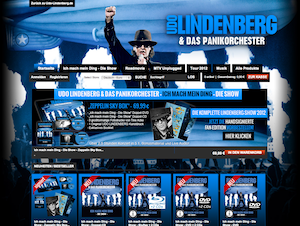Portfolio Warner Music Group
Strategic Technology Engineer / Global Ecommerce Technical Architect August 2011 - ?
About This isn't agency work
The Warner Music Group Magento instance is quite a big one, and since it's a single large project and I can't really sum this work up in the same way that I have for my other jobs within agencies. So I'll just give a brief overview of my role and throw in some screenshots and links.
I'm the tech lead, I manage the codebase, and the code contributed by the various 3rd parties who work on our platform. I attempt to ensure code quality and integrity, as well as performing regular audits of the work submitted by the collected internal developers and 3rd party agencies. My work also includes roadmapping the future of the platform, using technologies such as Jenkins, GitHub, and Node.JS to automate quality control, testing and deployment procedures as much as possible.
As you may imagine, with a large company like Warner Music Group, there was a vast array of existing infrastructure for the B2B side of the business when it decided to move into the D2C eCommerce field. However it was decided to revisit the infrastructure from scratch, using 3rd party fulfilment providers who specialise in D2C fulfilment and customer services. This involved integrating with new systems, such as SAP, and managing the communication back and forth for order management and notification.
A custom financial reporting suite has been built in-house at Warner to manage instantaneous flash reporting of sales, pulled directly out of Magento, and to act as the interface between Magento and the higher level financial systems within the company. The data push from Magento to this system had to be fast, scalable, and above all, extendable to cover the future of the platform.
In 2014 I was asked to organise a complete rebuild of the Magento platform, but this wasn't just for Europe, this was also for the US instance, and allow scope for rolling it out to other territories (such as Canada, Australia and Japan). This required doing full discovery on what all the various existing Magento instances did already, and then going through the process of whittling this down to required functionality, and even changing some business processes to better fit the Magento model.
A small development team was started in London to do the build, and I had to keep the team and the submitted code up to a high standard of work, whilst still hitting a release deadline. This required writing specifications for almost all parts of the build, and reviewing all code submitted by the developers.
Soon the team was extended to include developers local to the US business, making it an international team which required much more oversight and improved communication, using tools such as Jira and Redmine to manage tickets and work.

 Michael Bublé
Michael Bublé
 Green Day
Green Day
 Pink Floyd
Pink Floyd
 Udo Lindenberg
Udo Lindenberg